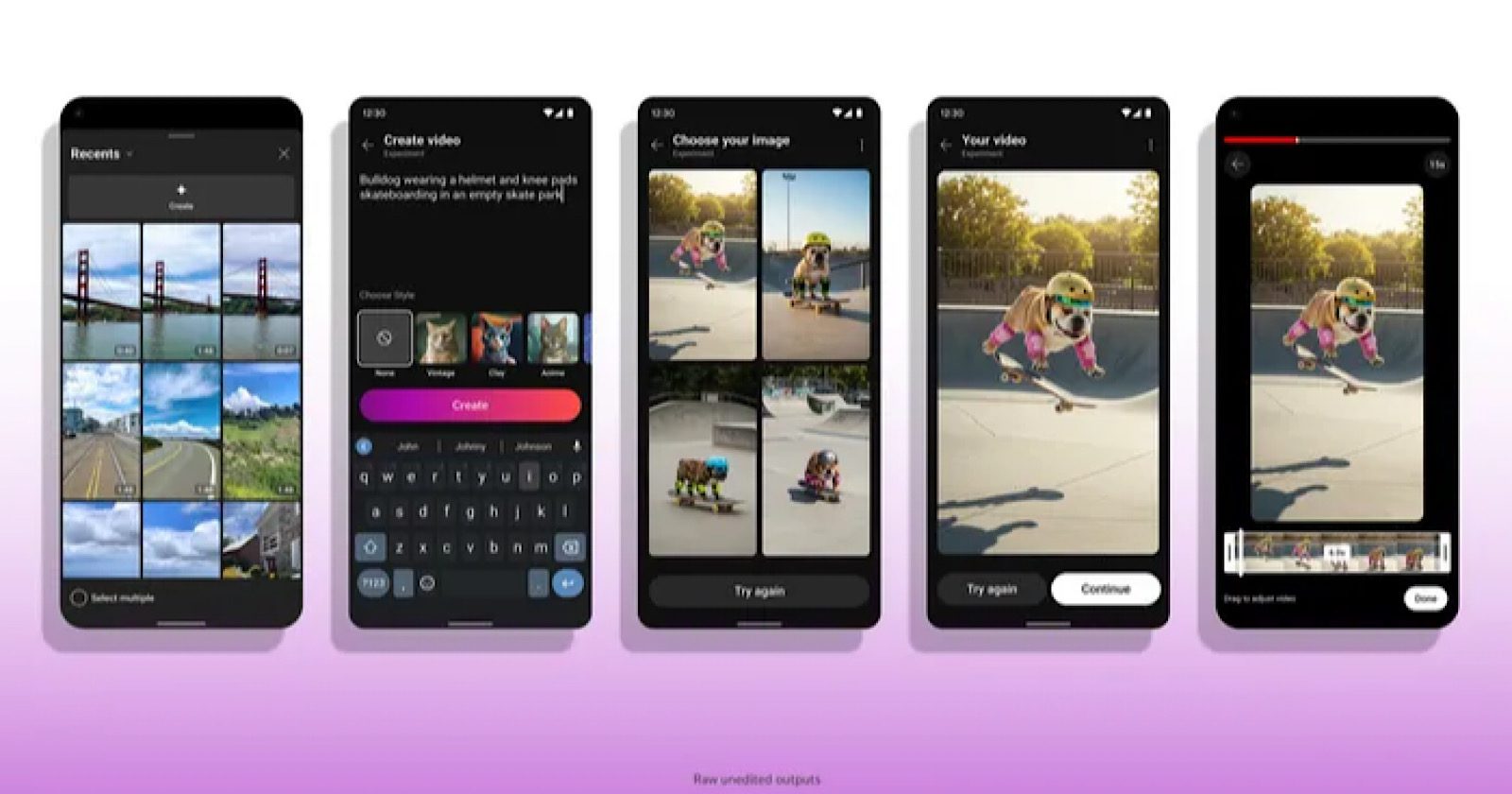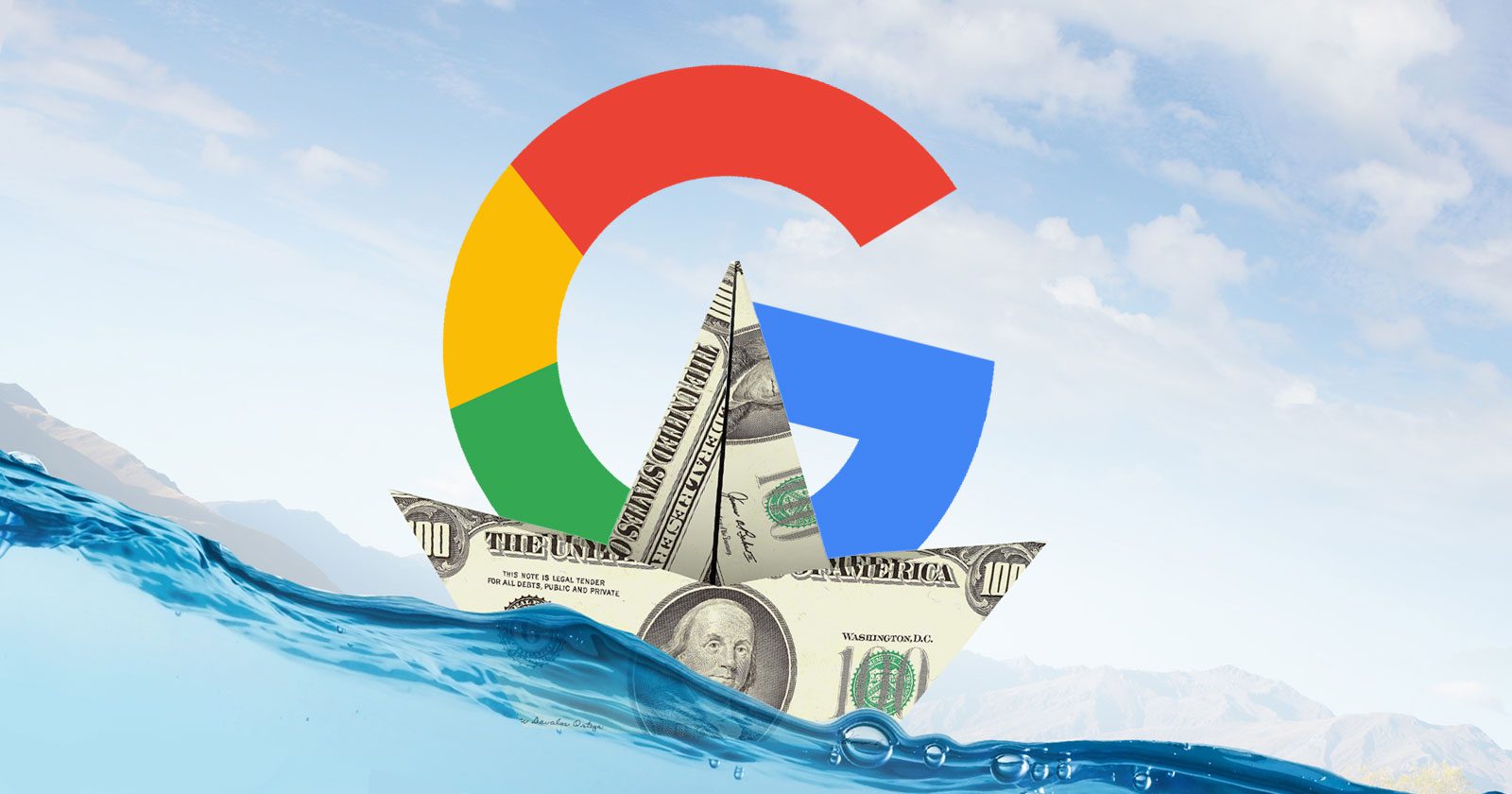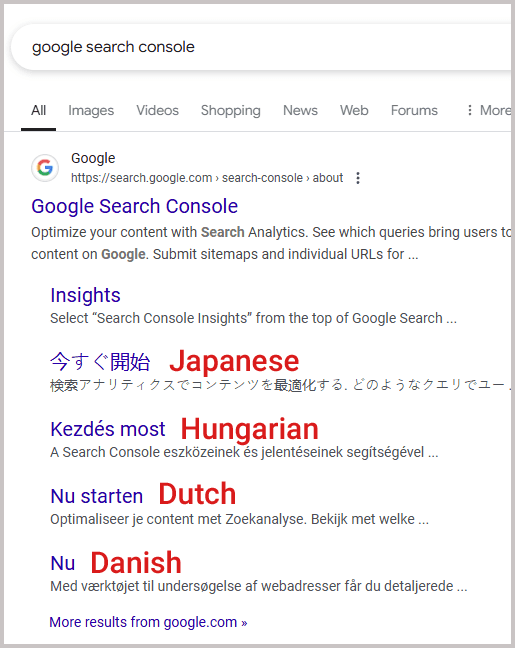Few professions can match a digital marketer’s perspective on what Google’s fourth-quarter results mean for SEO and online advertising. I asked six search marketers, each with over 20 years of experience in all areas of search for insights into what those results mean. What they shared indicates what SEO and advertising professionals should be paying attention to in 2025.
The six digital marketers who were separately interviewed all suggested that four general trends may be impacting Google search and advertising performance:
- Shifting User Behavior
- Changes To Google Search
- Google’s Not Immune To Competition
- Wider Economic & Market Conditions
Shifting User Behavior & Rising Competition
Although I interviewed each search marketer individually, they all agreed that user search habits were trending away from traditional search and migrating to AI and social platforms, indicating that Google is no longer immune to competitive pressure in both search and advertising.
Benu Aggarwal of Silicon Valley-based Milestone, Inc. (LinkedIn Profile) referenced the staggering investments in AI infrastructure as tangible proof of an ongoing shift in how people access information across consumer and business use cases.
“A lot of traffic is moving to LLMs such as ChatGPT, Perplexity (and Google’s Gemini). This is evidenced by Alphabet’s investments in AI, particularly in making compute inexpensive. They’re not alone, Meta, OpenAI, Nvidia, AWS, others are all investing in AI compute to support the surging demand.”
Michael Bonfils, of Digital International Group, (LinkedIn profile) shared that OpenAI was the leading disruptor to Google’s search platform, followed by a generational shift away from search toward visual social media platforms.
Michael said:
“I’ve been saying this since November 30, 2022 that this thing that OpenAI has just released has the potential to disrupt the intent of search users on Google, making it faster and more responsive with no ad disruptions and filtering out forum comments And the timing couldn’t be worse when you have an entire generation (Z/Alpha) who have moved to TikTok/IG for their search results.”
Chuck Price of Measurable SEO (LinkedIn profile) contributing additional nuance to the observation of user platform shift:
“Platform migration pressures play a role. Behavioral shifts toward visual/search hybrids (TikTok, Instagram) and answer-engine interfaces (Perplexity) suggest Google’s monopoly on search touchpoints is eroding, particularly among Gen Z and technical audiences.”
Duane Forrester, SVP, Search INDEXR.ai and formerly of Bing and Yext (LinkedIn profile) noted that the consumer journey is increasingly beginning somewhere other than Google Search:
“Search starts are down as consumers move to social platforms. Revenue is being impacted.
This is going to be our new normal in the search industry. With younger generations now aging and their habits being different, it’s natural to see them shift behavior from traditional search into new directions.
If you thought search engines were a forever thing, you were wrong. Reliance without diversification was always a recipe for disaster. This formula remains consistent. Change is also consistent and as people shift behavior, you better, too.”
Changes To Google Search
The fact that people are using other platforms for shopping ideas, inspiration and information gathering may be signs that Google’s search dominance is increasingly vulnerable to competition. That’s something that was unthinkable as recently as five years ago.
There were multiple changes to how search results are presented in Google Search, with the most notable being that AI Overviews and other search features reduced the need to click through to an answer. This trend to show answers and not links, often referred to as “zero-click” search results, is an ongoing trend that was previously limited to informational search queries.
The complaints from some SEOs about zero-click search results that initially greeted the introduction of Featured Snippets were arguably overstated. Informational searches that require one-dimensional answers (spelling, name of a person, etc.) don’t lead to meaningful traffic (for the website or the user). The traffic from Featured Snippets becomes very meaningful when people have a reason to dig deeper to learn more about a product, movie, a celebrity or a topic.
But Google AI Overviews (AIO) completely destroyed that useful tradeoff with the Internet ecosystem. The comprehensiveness of AIOs reduce the need to click to a website because they show the answer to the current question and enable users to view summaries to answers Google anticipated follow-up questions (read about Google’s Information Gain Patent).
While the complaints about zero-click search results for featured snippets were overstated, Google’s AIO and expanded layouts virtually eliminate the need to click through to websites. This not only disrupts the web ecosystem but may also introduce unanticipated shifts in search advertising trends.
Everett Sizemore, of eSizemore search marketing consultancy (LinkedIn Profile) offered his opinion on how changes to Google Search and external pressures are affecting Google’s earnings:
“The slowdown in Google’s growth doesn’t surprise me for several reasons.
First, what used to be a rumor of competition has grown into a measurable threat. According to Statcounter Global Statistics, Google’s global search market share dipped below 90% for the last three months of 2024. That hasn’t happened since 2015.
And those numbers likely don’t even account for the rising wave of AI-driven search alternatives like Perplexity and GPTSearch, the latter of which is conservatively projected to capture at least 1% of the search market by year’s end. Among younger users, the shift will likely be even more dramatic.
Second, Google’s search results pages (SERPs) are an absolute mess. Too many cluttered, disparate features have turned the once-streamlined UX into a Frankenstein-like disaster.
Remember those bloated Yahoo Search pages from the late ’90s? The ones Google originally disrupted with its clean, white background and ten blue links? Well, we’ve come full circle—back to the chaotic, overstuffed experience we were trying to escape in the first place. Frankly, it looks like someone puked up a bunch of widgets onto the page.
Google isn’t disappearing anytime soon, but its hold on search is weakening—one earnings quarter at a time.”
Google Is No Longer Immune To Competition
Chuck Price, founder of search consultancy Measurable SEO (LinkedIn profile), called attention to how multiple trends may be contributing to an erosion of search dominance and its concomitant effect on search advertising, putting some of the blame on the zero-click paradigm:
“The main takeaway, as I see it, is that the 0.2% YoY deficit doesn’t tell the full story.
What’s surprising for me in the Alphabet earnings report is the relative stability of search revenue, 12.5% growth versus 12.7% YoY. This seems counterintuitive, when considering how the SERPs have evolved over the past year with expanded answer boxes, AI-generated summaries and entity-driven knowledge panels. All of these features reduce the need to click on an ad or click through to a website.
Did Google’s advertising algorithms manipulate pricing to get that close? If one were to look at the YoY click data, I strongly suspect the deficit is far worse.”
Google is under pressure from ChatGPT Search, Perplexity AI and other AI search engines which introduce entirely new platforms that replace the 25+ year old Search Engine Paradigm. Google is competing platform to platform with AIO and their Gemini search assistant. Michael Bonfils suggested that those events have forced Google into a difficult position with limited options:
“They have reached a damned if I do damned if I don’t situation. They are either going to make the experience better for the user, worse for the publisher/advertiser or vice versa.”
Wider Economic And Advertising Pressure
Gabriella Sannino, founder of international marketing and SEO company Level343 (LinkedIn profile) shared a wider perspective of trends to interpret what Google’s fourth quarter results means for the search marketing community. Her answer, reflecting 20 years experience in all areas of digital marketing, included search advertiser sentiment and the worldwide economic situation.
Gabriella answered:
“When you look at the big picture and then the results, I don’t think the slower growth is entirely because of major SERP changes. I think it’s a mix of factors causing buyer behavior shifts:
First, ad and marketing budgets often get cut first when times get uncomfortable. So, slower growth may just be reflecting the sign of the times rather than anything Google’s done.
Second, ongoing privacy changes can affect ads in ways that have nothing to do with Google. Browser privacy settings can make ads less targeted or reduce how well they can be measured. Consequently, advertisers get less data for conversion improvements, retargeting, and ad optimization.
Third, you can’t review the advertising situation in isolation. The competition for ad dollars from TikTok, Amazon ads, Microsoft Advertising (especially with the AI-driven Bing hype), and so on must also be considered. A multi-channel mix means some of Google’s revenue goes bye-bye to other platforms.
Many businesses have tighter budgets, so ad ROI is under more scrutiny. And, there are many disillusioned business owners realizing that Google is changing too frequently to put their entire budget on it. AIOs were a real sign that things were changing, again. I wouldn’t be surprised if Google starts playing with ad space there fairly soon.”
Google’s Not In A Downward Spiral
Our panelist of search marketers interpret the fourth quarter results as signaling that Google is no longer immune from competition and is vulnerable to losing traffic to AI and social platforms as consumers increasingly begin their shopping and informational journeys outside of traditional search.
Google’s search results are perceived as cluttered and unstable because of constant changes to SERP layouts triggered by an increasing amount of keyword phrases. This may contribute to a sense of uncertainty. Nobody observed that Google is in a downward spiral. But the combination of the instability, changes in user behavior, and gains by other platforms are trends to look out for in 2025.
Stepping back for an overall view shows that continuing global economic issues and the attractiveness of advertising across multiple channels may be contributing to a shift in marketing spend. The search marketers I interviewed, who collectively have over 120 years of experience, hinted at concerns about deeper challenges in Google’s core businesses, with one search marketer questioning if there’s more paid search instability than is apparent in the most recent quarterly results.










